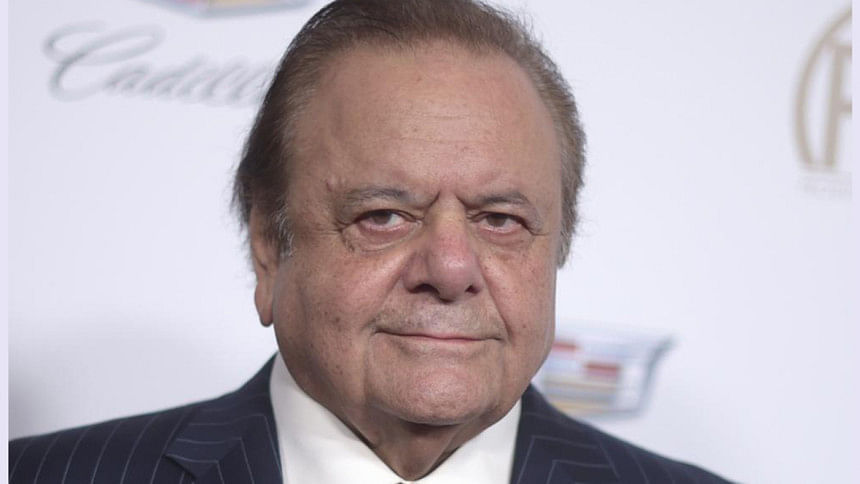Paul Sorvino, “Goodfellas”, “Law & Order” star dies at 83

Paul Sorvino, an imposing actor who specialized in playing crooks and cops like Paulie Cicero in "Goodfellas" and the NYPD sergeant Phil Cerretta on "Law & Order," has died. He was 83.
His publicist Roger Neal said he died Monday morning in Indiana of natural causes.
"Our hearts are broken, there will never be another Paul Sorvino, he was the love of my life, and one of the greatest performers to ever grace the screen and stage," his wife, Dee Dee Sorvino, said in a statement.
In his over 50 years in the entertainment business, Sorvino was a mainstay in films and television, playing an Italian American communist in Warren Beatty's "Reds," Henry Kissinger in Oliver Stone's "Nixon" and mob boss Eddie Valentine in "The Rocketeer." He would often say that while he might be best known for playing gangsters, his real passions were poetry, painting and opera.
Born in Brooklyn in 1939 to a mother who taught piano and father who was a foreman in a robe factory, Sorvino was musically inclined from a young age and attended the American Musical and Dramatic Academy in New York where he fell for the theater. He made his Broadway debut in 1964 in "Bajour" and his film debut in Carl Reiner's "Where's Poppa?" in 1970.
With his 6-foot-4-inch stature, Sorvino made an impactful presence no matter the medium. In the 1970s, he acted alongside Al Pacino in "The Panic in Needle Park" and with James Caan in "The Gambler," reteamed with Reiner in "Oh, God!" and was among the ensemble in William Friedkin's bank robbery comedy "The Brink's Job." In John G. Avildsen's "Rocky" follow-up "Slow Dancing in the Big City," Sorvino got to play a romantic lead and use his dance training opposite professional ballerina Anne Ditchburn.
He was especially prolific in the 1990s, kicking off the decade playing Lips in Beatty's "Dick Tracy" and Paul Cicero in Martin Scorsese's "Goodfellas," who was based on the real-life mobster Paul Vario, and 31 episodes on Dick Wolf's "Law & Order." He followed those with roles in "The Rocketeer," "The Firm," "Nixon," which got him a Screen Actors Guild Award nomination, and Baz Luhrmann's "Romeo + Juliet" as Juliet's father, Fulgencio Capulet. Beatty would turn to Sorvino often, enlisting him again for his political satire "Bulworth," which came out in 1998, and his 2016 Hollywood love letter "Rules Don't Apply." He also appeared in James Gray's "The Immigrant."
Sorvino had three children from his first marriage, including Academy Award-winning actor Mira Sorvino. He also directed and starred in a film written by his daughter Amanda Sorvino and featuring his son Michael Sorvino.
When he learned that Mira Sorvino had been among the women allegedly sexually harassed and blacklisted by Harvey Weinstein in the midst of the #MeToo reckoning, he told TMZ that if he had known, Weinstein, "Would not be walking. He'd be in a wheelchair."
He was proud of his daughter and cried when she won the best supporting actress Oscar for "Mighty Aphrodite" in 1996. He the Los Angeles Times that night that he didn't have the words to express how he felt.
"They don't exist in any language that I've ever heard — well, maybe Italian," he said.

 For all latest news, follow The Daily Star's Google News channel.
For all latest news, follow The Daily Star's Google News channel. 








Comments